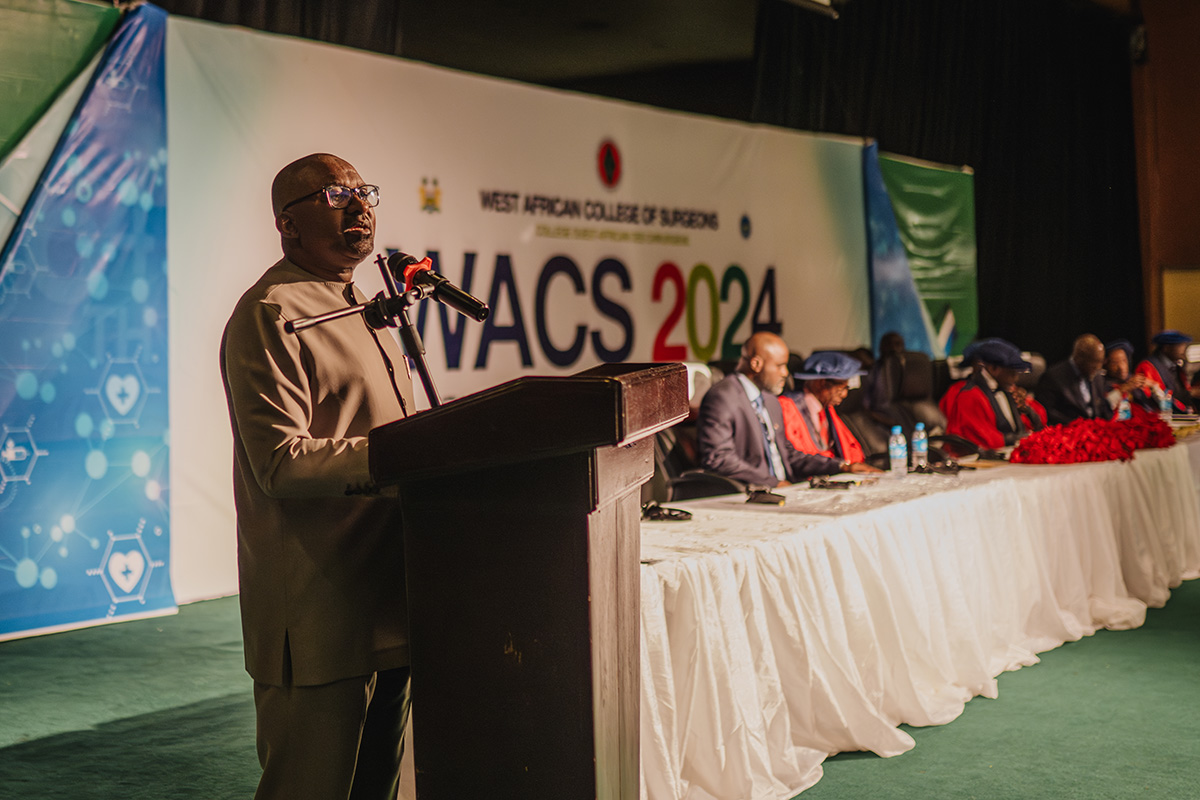Freetown, SIERRA LEONE – Renowned surgeons and medical experts from across West Africa and beyond met in Freetown, Sierra Leone to propose ways of accelerating access to surgical care and education at the 64th Conference and Scientific Meeting of the West African College of Surgeons (WACS).
The week-long event marks a significant milestone in demonstrating West Africa’s medical expertise, offering a platform to exchange ideas and collectively shape the future of surgery and anesthesia while demonstrating the great progress that the Sierra Leone Ministry of Health (MOH) has made with global partnerships.
Collaboration and strengthening surgical provisions are making a tangible difference in addressing the unmet surgical needs of citizens of Sierra Leone, but there is still much more to be done, according to the country’s Vice President, Mohamed Juldeh Jalloh.
The vice president was addressing the opening session of the conference at the Bintumani Conference Centre in Freetown when he revealed the country is still grappling with 91% unmet surgical needs. Vowing to expand and protect surgical access, he highlighted the progress made and urged collaborative efforts to tackle healthcare deficits as renowned surgeons and medical experts from across West Africa and beyond met at the event (March 3-7).
He highlighted the increase in surgical procedures across Sierra Leone in his opening address which was explored in more detail during a joint symposium for delegates organized by charities CapaCare, Mercy Ships and Lifebox in collaboration.
Håkon Bolkan, founding member of CapaCare, which is dedicated to medical education and training, explained how more community health officers trained in some surgical procedures were leading to an increase in operations delivered to patients in need, particularly in rural areas.
This increase is predominantly benefiting maternity with obstetric and gynecological procedures such as caesareans, increasing by 126.2% from 2012 to 2023 due to the government’s focus on improving maternal health. Ophthalmology accounted for an increase of 12.2% and general surgery 3.1% in this period but specialist areas such as orthopedics saw a decrease of 27.6% procedures in this time.
In his speech, Minister of Health Dr. Austin Demby acknowledged progress and the need for more to be done.
He said: “The theme of this year’s WACS resonates deeply with Sierra Leone’s commitment to access to safe and affordable surgical care. Sierra Leone is reimagining healthcare toward universal healthcare, where every Sierra Leonean counts, and services are directed at everyone from pregnancies to services for senior citizens – where no one is left behind.
“We want to ensure equitable access to surgical care across our entire nation. Surgeries play a critical role in healthcare delivery but we still have very limited access to these sorts of healthcare areas. We must do something about it and we must do something about it now.”
His thoughts were reiterated by Deputy MOH Dr Mustapha Kabba, a general surgeon.
Walt Johnson, Mercy Ships National and International Advocacy Manager, set out the foundations and need to develop a National Surgical, Obstetric and Anesthetic Plan (NSOAP) to continue to strengthen and improve surgical care from both an historical perspective and building on the foundations of the Dakar Declaration, which saw nations commit to improvements in this area across the African continent by 2030.
He said: “It has been a fabulous week-long opportunity for Sierra Leonean surgeons to showcase their work as WACS and the MOH, in partnership with one another and others, celebrate progress made in advancing surgical excellence and healthcare while also addressing and working hard to meet key challenges ahead for West Africa.”
Mercy Ships International Chief Medical Officer added Mercy Ships was also privileged to host some visitors from WACS onto its hospital ship, Global Mercy™, which is currently serving in Freetown.
Last week, Dr, Demby spoke in depth about the critical need for equitable access to safe and affordable surgery in Sierra Leone as WACS began.

